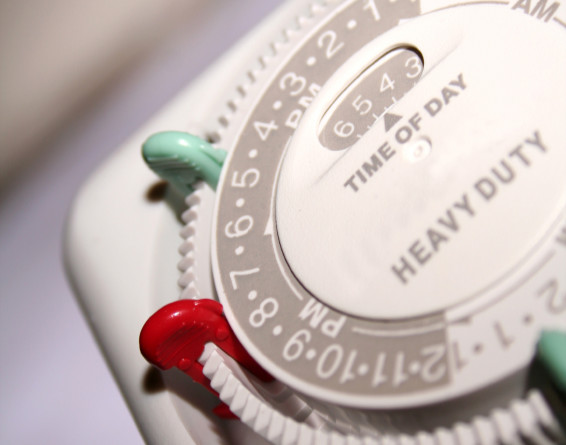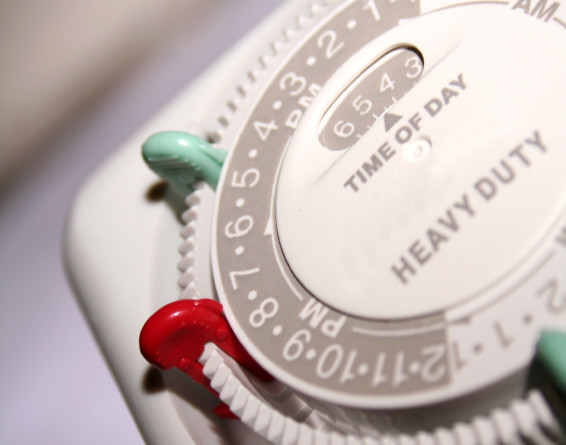Q. Dear Umbra,
So I’ve gotten a lot better at turning out the lights when I’m not in the room. I’ve still got some work to do in terms of turning off power strips when I’m not using appliances though. I was thinking about this last night and I remembered this contraption at my grandparents’ house that is preset to turn lights on and off at particular hours during the day. I haven’t had much luck figuring out what these devices are called to determine where to get them, or if they are worth it. Could you look into this for me and let me know about any other tricks for those of us that want to be better about their electricity usage, but aren’t always very good about putting ideals into practice.
Jonathan C.
Coquitlam, B.C.
A. Dearest Jonathan,
 Automatic for the people.iStockThey are called light timers. At least, if you walk into a hardware store and ask for the light timers, you will be shown to these objects. I have two that are simple square boxes with a 24-hour dial. You plug the box into the wall, plug the lamp into the box, set the color-coded plastic prongs by the desired off and on times, and that’s it. They shouldn’t cost more than five dollars. There are also digital versions, slightly more costly at about $12 and up. And there are versions in which the timer is embedded in a power strip, also fairly cheap at around $20 (these last two, and others mentioned below, are viewable during an Amazon window-shopping trip if you can’t find them at the hardware store).
Automatic for the people.iStockThey are called light timers. At least, if you walk into a hardware store and ask for the light timers, you will be shown to these objects. I have two that are simple square boxes with a 24-hour dial. You plug the box into the wall, plug the lamp into the box, set the color-coded plastic prongs by the desired off and on times, and that’s it. They shouldn’t cost more than five dollars. There are also digital versions, slightly more costly at about $12 and up. And there are versions in which the timer is embedded in a power strip, also fairly cheap at around $20 (these last two, and others mentioned below, are viewable during an Amazon window-shopping trip if you can’t find them at the hardware store).
It is feasible that a hardware store employee might lead you to another cheap and handy light timer, a photosensitive attachment for outdoor lights. This would be good for a porch light. Again, all about me: the one I have is a little tube with threading at both ends, like a lightbulb bottom with no light bulb in it. One end screws into the light fixture, the other receives the light bulb. In between is a magical eye that senses whether there is darkness or light. You leave the porch light switch on, and the magic eye does all the work of turning the bulb on and off at the appropriate times.
You might also benefit from one of the higher-end power strips of which I have written before. These do smart things like, if you turn off your computer, the strip turns off all affiliated appliances. Or, if you leave the room, they turn off the appliance. Of course you can use the five-dollar light timer to turn off your computer peripherals as well.
If you are up for a little electrical work, you could install a more complicated electric timer wired directly to an electric box (the thing hidden behind a wall switch). I’ve never used one of these, but it sounds a bit like a programmable thermostat. Or, install a timed wall switch. Perhaps you’ve seen these in hotel bathrooms, where they might run the lights or the fan. Instead of a normal on/off toggle, the switch has four or so settings of 10 minutes, 20 minutes, 40 minutes, 60 minutes, and hence turns itself off after an allotted time.
I like all of these things, even the ones I haven’t used. They are tiny robots that do our work for us, and also do the work for our houseguests. Have fun at the hardware store, whether virtual or physical.
Switchily,
Umbra



